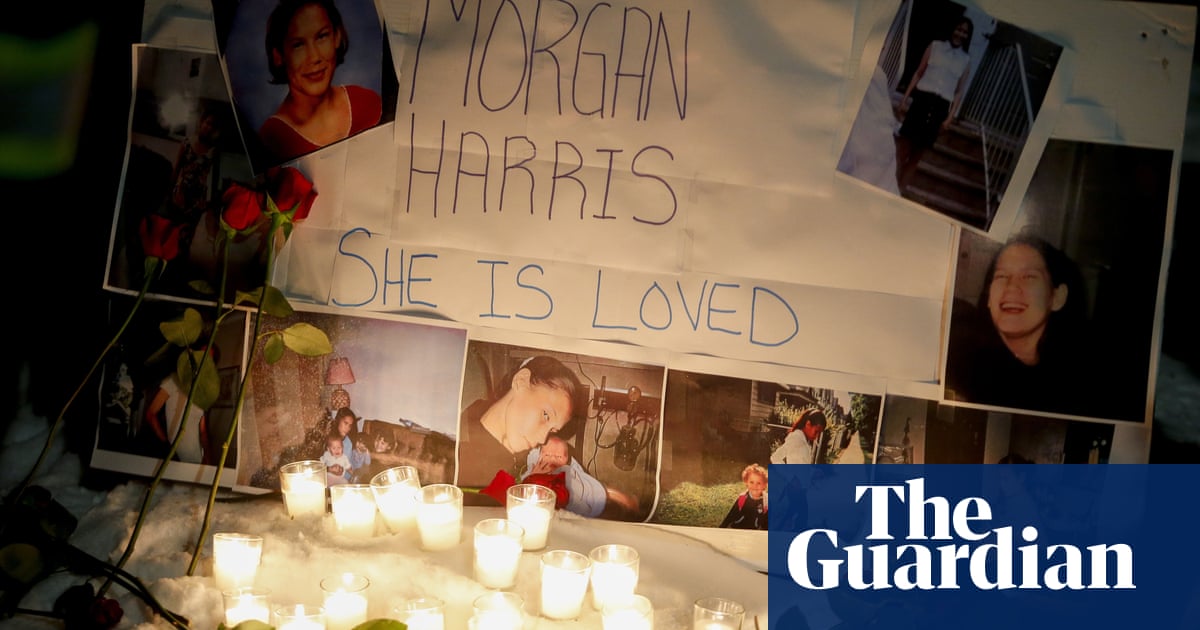A serial killer who preyed on Indigenous women in Canada will serve decades in prison after a judge determined he was criminally responsible for four “jarring and numbing” murders, in a verdict celebrated by family as “justice being served”.
Justice Glenn Joyal ruled on Thursday that Jeremy Skibicki was guilty of first-degree murder in the killings of Rebecca Contois, Morgan Harris, Marcedes Myran and an unidentified woman, who was named Mashkode Bizhiki’ikwe (Buffalo Woman) by Indigenous leaders. Joyal rejected an argument from the defence that Skibicki’s mental health had prevented him from understanding his actions.
Joyal said the “mercilessly graphic” nature of the case and Skibicki’s “purely expressed racist views” meant the killings had an “undeniable and profound impact” on the province of Manitoba, and laid bare the crisis of missing and murdered Indigenous women and girls in Canada.
The packed gallery in the Winnipeg courtroom erupted into cheers when the oral verdict was delivered.
“I just felt super happy. I wanted to cry,” Jorden Myran, Marcedes’s sister, told reporters after the verdict was read. “We fought for this for so long. He got what he deserved.”
On the eve of his trial, Skibicki admitted in May to killing the women. But his lawyers argued he should be found not criminally responsible for murders because he had schizophrenia at the time.
Prosecutors argued that Skibicki’s murders were racially motivated and that he deliberately targeted vulnerable women in the city’s shelter system.
The first-degree murder verdict means Skibicki will serve a life sentence with no chance of parole for 25 years.
The murders were first uncovered in 2022, when the remains of Rebcca Contois, a member of Crane River First Nation, were found in a dumpster near Skibicki’s home. Police later found more remains in a city landfill.
During police interrogations, Skibicki admitted to killing Contois and the three other women, who were living in Winnipeg at the time. He cited white supremacist beliefs.
Dr Sohom Das, a forensic psychiatrist from the United Kingdom, testied for the defence, suggesting Skibicki suffered schizophrenia and was motivated by delusions, including a belief he was on a mission from God. But justice Joyal rejected Das’s conclusion and questioned the psychiatrist’s credibility.
Instead, he sided with Dr Gary Chaimowitz, the forensic psychiatrist who testified for the prosecution.
In graphic testimony, Chaimowitz told the court he beleived Skibicki made up the alleged delusions, and was likely motivated by homicidal necrophilia.
Joyal told the court a full written decision, more than 150 pages long, would be released next week. The sentencing hearing for Skibicki will be held at a later date.
For families of the victims, the case has also been a grim reminder of government inaction: the remains of Harris and Myran are believed to be buried in the Prairie Green landfill, and police initially said they lacked the resources to search the privately owned facility, much of which is buried under tonnes of clay.
In March, Canada pledged tens of millions of dollars to search landfill for the remains of two Indigenous women, with work set to begin in the fall.
Donna Bartlett, Marcedes Myran’s grandmother, told reporters outside the court she was “happy” that Skibicki would serve a prison sentence.
“He got convicted of murder and I’m glad of that, I really am. Now the next step is to bring my girl home.”

